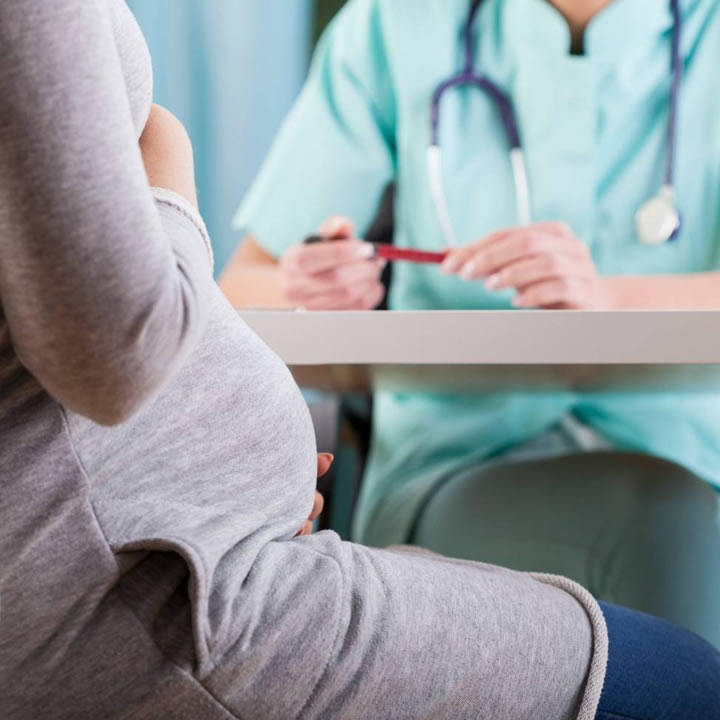Pregnancy is one of the happiest moments in a person’s life. But the joy of having a baby on the way isn’t always as smooth as one may think.
While many people give attention to postpartum depression, the pregnancy period can also be a time of high stress and anxiety. In this regard, it’s worth identifying such a condition in its early stage.
What Is Pregnancy Depression?
Prenatal or pregnancy depression is a condition that can occur in the period before giving birth. It’s usually a direct result of the physical, emotional, and mental strain caused by pregnancy.
Like postpartum depression, prenatal depression can induce various symptoms with different severity.
When untreated, it can negatively affect both the mother and the baby.
Top 10 Symptoms of Pregnancy Depression
Researchers estimate that up to 7% of pregnant women experience prenatal depression. As exciting as pregnancy can be, you shouldn’t ignore any signs of sadness or depression. In this regard, we’ve compiled a list of prenatal depression symptoms.
Here are the ten most common signs that can help you identify depression during pregnancy:
Anxiety
Sadness and hopelessness are common feelings everyone can experience during times of excess stress. However, pregnancy can unlock symptoms of anxiety that vary in form and intensity.
Some of the common signs include:
- Irritability
- Restlessness
- Increased heart rate
- Feeling weak
- Sleep problems
- Lack of concentration
- Uncontrollable feelings of worry
- Psychosomatic pains (i.e., stomach ache, headache)
While many factors can contribute to anxiety, some people have a hereditary predisposition. If you have a history of family members with anxiety, you’re more likely to suffer from pregnancy depression.
Low Self Esteem
Low self-esteem is a common symptom that many mothers-to-be experiences.
However, feeling excessive doubt over whether you’ll be a good mother should ring an alarm.
Such a condition isn’t always a simple feeling and can quickly spiral into a more significant issue. Since it makes you not want to try new things and put yourself in social situations, it can completely stop you from accomplishing daily tasks.
Life Stressors
Sometimes, the catalyst for prenatal depression may be caused by external factors.
If you live in a stressful environment or have such experiences, you can trigger prenatal anxiety. Common causes may include relationship or financial problems or the loss of a loved one. Still, the stressors don’t necessarily have to be current.
Past trauma, like an event connected to the loss of an infant, can also trigger prenatal depression.
Poor Weight Gain
As expected, mental health always reflects in physical health. In this regard, changes in mood and emotions are often accompanied by physical symptoms like poor weight gain. In most cases, depressed mothers lose their appetite or have an inefficient diet.
Having difficulty eating a well-balanced diet can prevent you from gaining enough weight during pregnancy. On the other hand, this may put your baby’s health at risk. While the amount of weight is strictly dependent on your body type, you should not ignore it.
Changes In Sleep
Changes in sleep patterns are one of the typical symptoms during pregnancy, especially in the later trimesters.
However, excess sleep deprivation can also be an indicator of pregnancy depression. If you experience other side effects along with problems falling or staying asleep, you likely suffer from a depressive condition.
Lack Of Energy
As already mentioned, bad mental health often reflects on the physical condition of pregnant women.
But if you’re constantly feeling exhausted and weak, the problem might not be solely in your pregnancy. Those symptoms are common for depressive states where the energy levels do not replenish no matter what you do.
If you feel unmotivated and weak, you may have prenatal depression.
Lack of Social Support
While you cannot control or limit the amount of stress you experience, the way you deal with it depends on several factors. But regardless of your ability to cope with stressful situations, the lack of strong social support can also affect your condition.
The feeling of isolation can quickly deteriorate and put you in a state of pregnancy depression.
Unintended Pregnancy
Unintended pregnancy is not bad, but it can trigger a lot of stress.
That’s why it’s often just another reason for exacerbated feelings of depression. If you didn’t plan your baby, you probably feel more stress due to the complications in your personal life and work.
Intimate Partner Violence
Intimate partner violence survivors and those currently suffering from it are more likely to experience depression. Indeed, violence and even small disagreements with a current or former love partner can make your life more stressful and anxious.
In both cases, this may increase the risk of prenatal depression.
Thoughts Of Self-Harm
We often have thoughts of self-harm (including but not limited to suicide) when we feel down or desperate. Such feelings can become excess in the period before giving birth. If you feel like you want to harm yourself, share your feelings with a loved one.
Why Is Timely Pregnancy Depression Treatment Important?
Pregnancy depression is a severe condition that no one should ignore. Whether it’s you or somebody you love, reaching out to a mental health professional is crucial. If the symptoms are physical, you should contact a medical specialist.
In either case, ensuring a balanced diet and good physical and mental health is vital.
That way, you’ll guarantee a problem-free birth, and you’ll also prevent postpartum depression.
After all, your baby’s well-being relies heavily on your health, so it’s best to take action as soon as possible.

